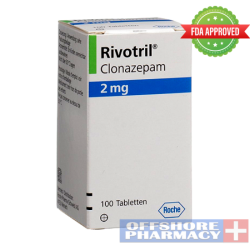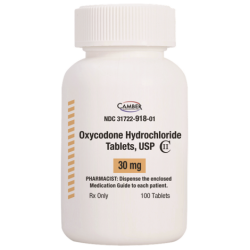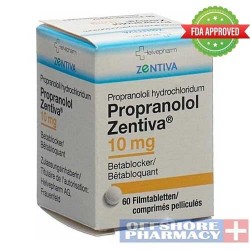
A chronic condition is an illness or disease that you can’t simply get rid of in a matter of days or weeks. According to the CDC’s definition, chronic illnesses lasting at least a year may limit your ability to handle day-to-day living activities and require continuous medical treatment. A diagnosis of a chronic disease can devastate your life and have a profound impact on your future plans, so it’s important to know your options. Here, Offshore Pharmacy presents some information to help you decide what to do next.
Your First Step: Learn About Your Disease
You’ve heard before that knowledge is power. This is at its truest when it comes to learning about your health. Of course, you will talk to your doctor, but there are other ways to learn objective information about your condition. One idea is to take a healthcare course, which can help you learn everything from lifestyle changes to how to manage conditions, such as diabetes. This does not mean you should Google your condition, but that you should look for trusted resources and educate yourself on the disease.
Next: Check Your Insurance
Your health insurance will become your most valuable partner as you face what may be a long road of treatment. You have many options, including your company’s or your partner's healthcare plan, health insurance through the Freelancers Union, or (the priciest option) COBRA if you don’t already have an insurance plan. Keep in mind that you cannot be denied coverage, even after you’ve been diagnosed. But you will still need to know what your insurance plan covers.
Another tip here is to make sure that you always have a digital PDF of your healthcare records with you. This makes it easier to share information with caregivers, physicians, and others that may be involved in your care. PDFs are easier to open than most Microsoft files, and you can edit them online using a simple drag-and-drop tool, even if you’re not tech-savvy
Now: Create a Care Plan
All chronic health issues come with a different set of symptoms and challenges. Many, such as HIV, multiple sclerosis, epilepsy, IBS, and Crohn’s disease, may be helped by the use of medical marijuana. The National Library Of Medicine explains that medical marijuana can ease pain, control vomiting and nausea, and combat the effects of weight loss for those who lose their appetite. Check to see what your state’s rules are regarding medicinal marijuana.
If you are on a set budget and are struggling to afford your medication, visit Offshore Pharmacy online to see if they have what you need. They offer many common prescriptions at significantly reduced prices that can make your care less of a financial stress.
You may also find that your current home isn’t set up for the kind of care you will need. In that case, you may want to consider selling your home and purchasing a more accessible one. Contact a real estate agent who can help you determine how much equity you have in your current home and/or what your budget will be moving forward. From there, you can begin to look at homes that are close to your doctors and specialists, and that have the accommodations you will require.
The Unpleasant: Get Your Affairs In Order
Although chronic conditions are not necessarily terminal illnesses, a diagnosis will put your mortality in sharp focus. Now is a great time to go ahead and deal with the unpleasant idea that you may not be around forever. In this vein of thought, you’ll want to prepare ahead, especially if you have children that might be affected by your untimely demise. Get your affairs in order now, which includes establishing a financial and/or medical power of attorney. You’ll also want to make sure that you have healthcare directives in place so that you can maintain control over your body if you are not physically able to make decisions at the moment.
Grab a Coffee: It’s Time to Sit Down with Your Family
Another less-than-desirable act that you have to take is talking with your family about your condition. While some diseases, such as arthritis or obesity, may be apparent in your everyday life, children and relatives that don’t live close by may be completely unaware that you are ill. If possible, get everyone together and discuss what your diagnosis means. NHS Inform assures that, even if your children are young, kids can deal with the truth in ways we often underestimate.
Put a Plan in Place for Your Best Care
This is in no way a personalized or complete list of things you can and should do if you’ve been diagnosed with a chronic medical condition. However, the steps we’ve mentioned above, including assessing your health insurance, keeping records with you, considering a more accessible home, and talking to your family, can help you get over the hardest part, which is the initial shock of a new diagnosis.








12 Comment(s)
This is really interesting, You're a very skilled blogger. I have joined your rss feed and look forward to seeking more of your fantastic post. Also, I've shared your web site in my social networks!
You made some really good points there. I looked on the web for more information about the issue and found most individuals will go along with your views on this site.
There's certainly a lot to know about this topic. I like all of the points you made.
<strong>... [Trackback]</strong>
[...] Informations on that Topic: blog-rx-meds.xyz/claravis-cost-with-insurance/ [...]
Whoa! This blog looks exactly like my old one! It's on a completely different topic but it has pretty much the same layout and design. Superb choice of colors!
Ahaa, its nice dialogue about this paragraph at this place at this webpage, I have read all that, so now me also commenting here.
Merely wanna remark on few general things, The website pattern is perfect, the content is real wonderful :D.
I am sure this piece of writing has touched all the internet people, its really really fastidious post on building up new website.
Ahaa, its fastidious conversation on the topic of this article at this place at this web site, I have read all that, so at this time me also commenting here.
This site was... how do I say it? Relevant!! Finally I have found something which helped me. Cheers!
I am sure this paragraph has touched all the internet visitors, its really really nice article on building up new website.
Ahaa, its good discussion regarding this post at this place at this web site, I have read all that, so now me also commenting here.
Leave a Comment